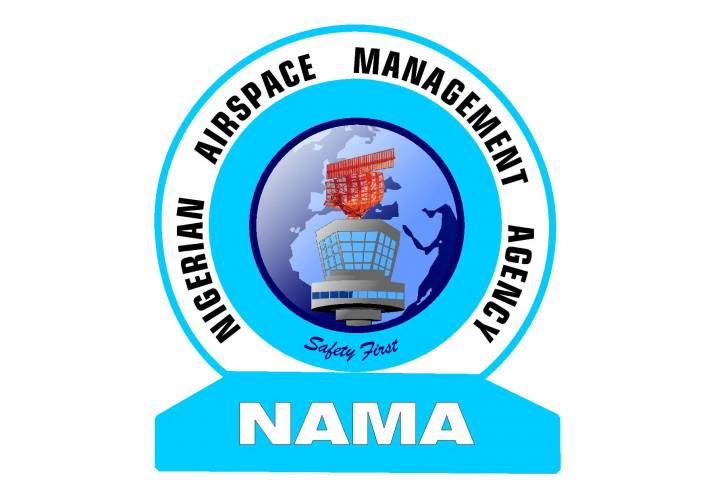The Nigerian Airspace Management Agency (NAMA) has commenced a wide-ranging audit of the nation’s airspace as part of efforts to strengthen safety, improve operational efficiency, and align with global aviation standards.
The audit, described by the agency as historic, will involve a full review of the country’s communication, navigation, and surveillance systems, alongside assessments of air traffic management procedures. It will also cover critical infrastructure at major airports and regional air traffic control centres across the country.

NAMA said the exercise is necessary to identify gaps in current operations and to develop a strategic roadmap that will enhance the safety of flights within Nigerian skies. According to the Managing Director of NAMA, Umar Farouk, this is the most comprehensive review the agency has ever embarked upon.
“This audit is not a routine activity; it is a structured, nationwide review of our entire airspace management system. We want to ensure that our infrastructure, technology, and personnel meet the standards required to guarantee safe and efficient air navigation services,” Farouk said.
The agency explained that the audit will assess the functionality of the Total Radar Coverage of Nigeria (TRACON), a project launched to provide continuous radar surveillance of the nation’s airspace. Concerns have been raised over the state of maintenance and the adequacy of TRACON facilities, and the audit is expected to provide clarity on current operational conditions and future requirements.
Another major focus of the review will be the gradual implementation of Performance-Based Navigation (PBN). PBN is a modern navigation approach that allows aircraft to fly more direct and fuel-efficient routes. While some airports in Nigeria have begun limited adoption of PBN, the audit will evaluate how widely it has been applied and the extent of training available to air traffic controllers and pilots.
Aviation stakeholders have welcomed the initiative, noting that the country’s aviation sector has long required a thorough safety and performance evaluation. Industry analysts say that the results of the audit could help restore confidence among international airlines and strengthen Nigeria’s standing with global aviation regulators such as the International Civil Aviation Organization (ICAO).
Captain John Ojikutu, an aviation consultant, noted that the audit was a positive step but cautioned that its recommendations must not remain unimplemented. “Audits are only as useful as the action that follows them. The aviation industry has seen many reports in the past that were not acted upon. What is important now is that NAMA commits resources and works with government authorities to implement the findings,” he said.
The Federal Government has pledged its support for the initiative. The Minister of Aviation and Aerospace Development, Festus Keyamo, said the exercise is in line with the administration’s focus on improving infrastructure and service delivery in critical sectors of the economy. He added that aviation safety is central to the country’s growth and integration into the global economy.
“Aviation is a vital link for trade, investment, and tourism. This audit is an opportunity to improve safety oversight and position Nigeria as a regional hub for air transport. The government will ensure that the agency has the necessary resources to carry out this important work,” the minister stated.
NAMA said the audit will also address human resource capacity, including the training and performance of air traffic controllers, engineers, and technical staff. Personnel development has been identified as a recurring challenge, with calls for more consistent training programmes and investment in modern simulation tools.
The exercise is expected to last several months, with findings to be published in phases. Transparency will be a key factor, as stakeholders including airlines, regulators, and passengers are keen to see practical improvements.
Analysts believe the audit will have significant economic implications. Improved airspace management could reduce operational risks, cut down on flight delays, and enhance Nigeria’s reputation among international carriers. These improvements could lead to increased passenger traffic and more investment in the country’s aviation sector.
For passengers, a safer and more efficient airspace system could translate to more reliable flight schedules and fewer safety concerns. Airlines, on the other hand, could benefit from lower insurance premiums and reduced operating costs linked to safer and more modern systems.
Observers say that while the audit is a step in the right direction, its long-term impact will depend on consistent funding, political commitment, and adaptability to emerging challenges in the aviation industry. Issues such as drone integration, cybersecurity threats, and climate-related disruptions are becoming increasingly relevant to global airspace management.
The audit comes at a time when Nigeria is competing with other West African nations, including Ghana and Senegal, which have made recent investments in air navigation infrastructure. Aviation experts say the results of NAMA’s review will determine how Nigeria can maintain its role as a leading hub in the region.
As the process gets underway, industry watchers will be monitoring closely to see whether the initiative delivers measurable improvements in safety, efficiency, and international confidence in Nigeria’s air transport sector.
Support InfoStride News' Credible Journalism: Only credible journalism can guarantee a fair, accountable and transparent society, including democracy and government. It involves a lot of efforts and money. We need your support. Click here to Donate
